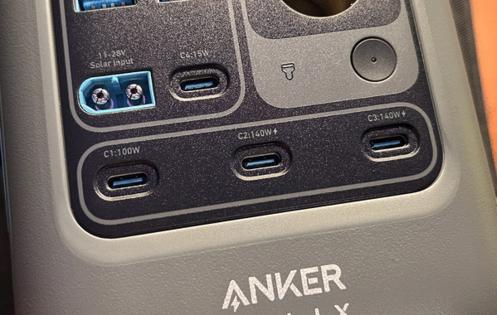Jim Rossman: USB charging is not an exact science
Published in Science & Technology News
This week a reader writes, “I have not experienced this before, but I have a Satechi external battery which I use to charge my Apple Watch (and other things). It charges with USB-C.
"Last weekend we were at a very nice hotel in Galveston and charging my watch used up about half the battery. I attempted to recharge the battery using the same USB cable that we use at home, but plugged it into a USB port on a lamp. After 5-7 hours it failed to charge the battery. I also tried the Apple USB power brick we use at home with the same USB cable we use at home. After a couple of hours, it failed to charge.
"When I got home I used the same plug and USB cable in our normal outlets. Voila, when I checked it a couple of hours later, it was fully charged. So, can there be different power levels among outlets in hotel rooms and the USB port in a lamp? I thought it would be the same.”
I can explain one of your questions. The other, not so much.
USB ports are not all providing the same amount of power.
The USB standard began by dictating the ports provide 5 volts with a maximum current draw of 0.5 amps.
This is paltry compared to the needs of today’s power-hungry gadgets, but it was enough to power keyboards and mice and other peripherals.
Latest versions of the USB standard increased the available power.
Today there are USB chargers that can provide up to 240 watts per port (48 volts at 5 amps).
Most modern devices can talk to most modern USB chargers to negotiate a charging rate that makes them both happy.
Also note, USB-C ports usually have more power to provide than USB-A ports.
I’d recommend investing in a new USB-C charger that provides more juice to charge that battery. Look for the term USB with Power Delivery. Those are the chargers that provide more power for faster charging.
Cables can also play a role in charging speed. Look at the specs when you shop for a charging cable, and you’ll usually see a maximum charging rate listed. Faster is better.
As to why the Apple charger and your usual cable didn’t charge the battery – I’ve got no answer for that one.
I doubt the AC outlet was faulty, but you never know.
I’d like to see if a different outlet would make it work or if that Apple wall charger would work with a different device.
Or maybe that hotel room was just cursed. You never know.
©2025 Tribune Content Agency, LLC.







Comments